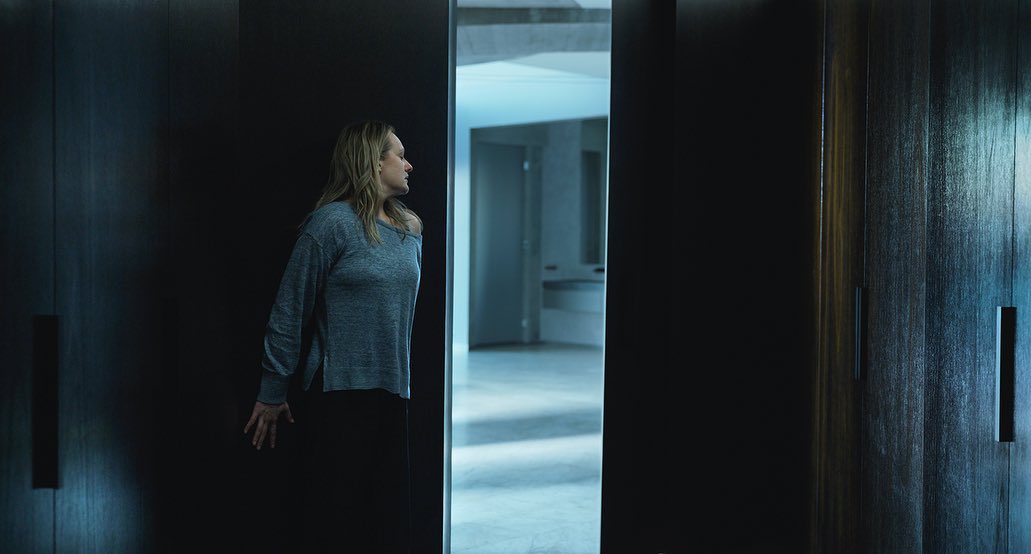It seems now more than ever, the film industry is turning to the literary world to find its stories. The big studios feel adaptations is where the money is. So, whenever I sit down to watch a translation of a beloved book to the big screen, I must admit, I’m always sceptical. It is essential to ask the questions; do we need this and do we need it now. For Australian director Leigh Whannel’s sci-fi-horror, The Invisible Man, that is a resounding yes and yes. This smart and timely film takes H.G. Wells classic of the same title and ultimately changes the main character’s perspective. Instead of assuming the eye of an invisible man, we follow his victim, here Cecilia Kass, expertly played by Elizabeth Moss.
The film opens with Cecilia’s escape from her abusive boyfriend and optic tech giant Adrian Griffin (Oliver Jackson-Cohen.) After news of his death a few weeks later it seems Cecilia can finally begin to rebuild her new life. However, an inexplicable and invisible presence begins to show itself to Cecilia who struggles to convince those around her of its existence.
We have seen Moss in this role before, I’m thinking of the breath-taking The Handmaid’s Tale in particular, a strong yet vulnerable woman battling a dystopic patriarch with force and wit. And she certainly does the role justice here too. Let us not forget that for most of the film she is reacting and even fighting with something that isn’t there. Convincing the audience of something that is not there is to the credit of Whannel’s direction also. His experience in the genre (with both the Saw and Insidious franchises under his belt) shows intense moments of empty hallways and open frames. One of my favourite moments in the film sees Cecilia panting in the cold outside as checks to see if anyone mysteriously opened the front door. Just next to her, literally breathing down her neck, we see the cold breath of the invisible man. Stefano Duscio’s photography and the design from the sound department help sell these moments. The combination of slow measured pans across empty rooms with moments of silence interrupted by ear-shattering synthetic booms received many jumps and gasps in the theatre.
Ultimately it is not the filmmaking that makes this story so worthy of your time. It is Whannel’s choice to follow the woman instead of the man that makes this an important movie. It is not possible to separate The Invisible Man from the context of its time. The stories of #MeToo, men who after using their positions of power to abuse women are exposed by those same women, sounds eerily familiar to the summary given of The Invisible Man. Despite the hybrid of a genre, Whannel is working within he is still able to maintain the seriousness this story deserves. It is for that reason I see The Invisible Man as a film adaptation that we need, and one that we need for a film industry of today.
Image Credit: IMDb

